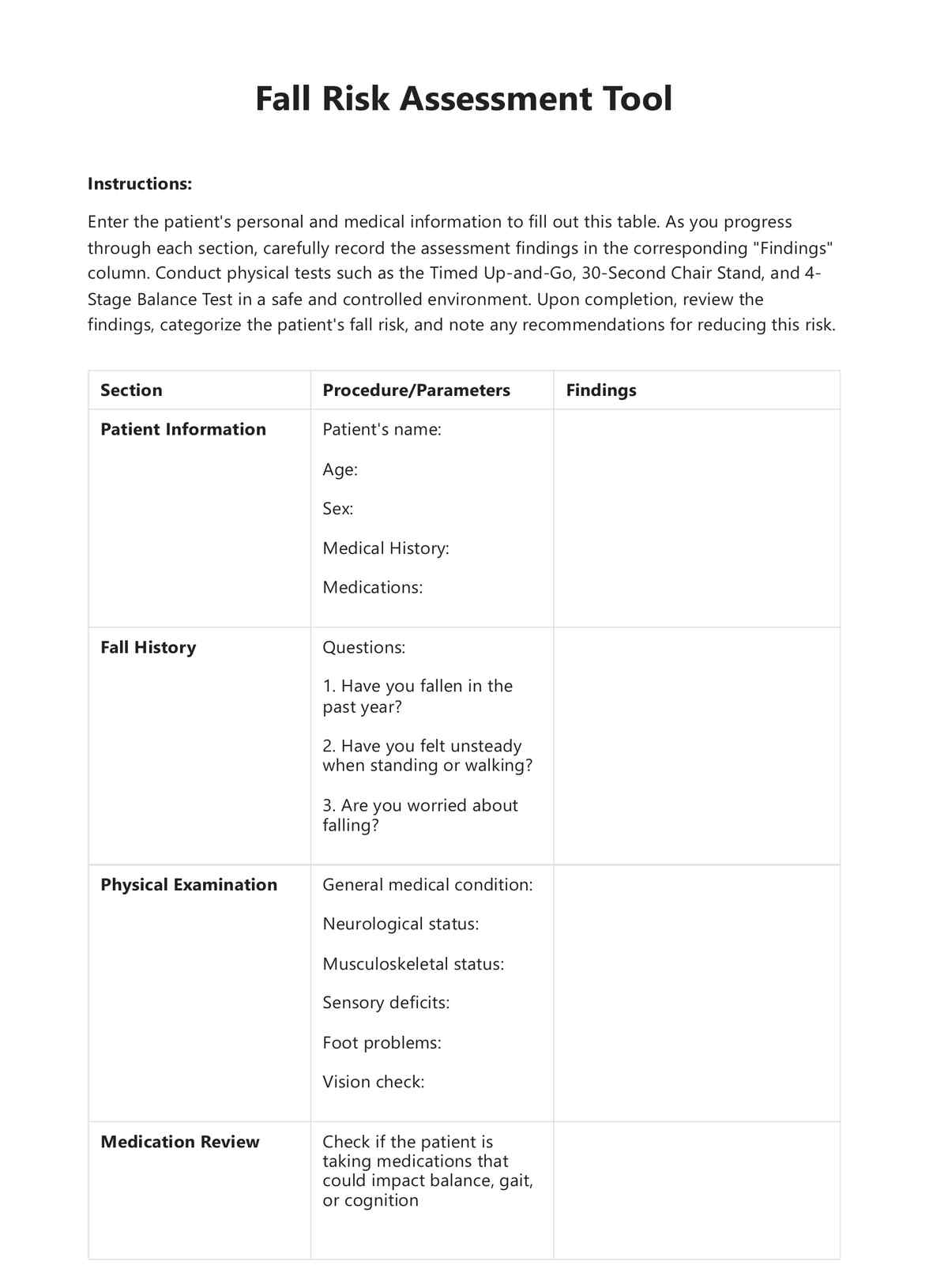The Best Strategy To Use For Dementia Fall Risk
The Best Strategy To Use For Dementia Fall Risk
Blog Article
Examine This Report on Dementia Fall Risk
Table of ContentsAll about Dementia Fall RiskWhat Does Dementia Fall Risk Do?How Dementia Fall Risk can Save You Time, Stress, and Money.The Dementia Fall Risk StatementsThe Best Guide To Dementia Fall Risk
Guarantee that there is a designated area in your clinical charting system where team can document/reference ratings and record appropriate notes related to drop avoidance. The Johns Hopkins Fall Danger Assessment Tool is one of lots of devices your team can use to help protect against negative medical events.Client drops in medical facilities are usual and devastating unfavorable events that persist regardless of decades of initiative to reduce them. Improving interaction across the analyzing nurse, treatment team, individual, and patient's most involved loved ones might enhance loss prevention efforts. A group at Brigham and Women's Healthcare facility in Boston, Massachusetts, sought to establish a standard fall prevention program that focused around boosted communication and client and family members engagement.

The development group emphasized that successful execution depends on client and team buy-in, integration of the program into existing operations, and integrity to program processes. The team kept in mind that they are grappling with how to make sure connection in program implementation during durations of situation. During the COVID-19 pandemic, as an example, a boost in inpatient drops was associated with restrictions in individual involvement along with restrictions on visitation.
The Ultimate Guide To Dementia Fall Risk
These events are usually thought about preventable. To carry out the intervention, organizations need the following: Accessibility to Loss pointers sources Autumn ideas training and retraining for nursing and non-nursing staff, including brand-new registered nurses Nursing process that enable individual and household engagement to conduct the drops analysis, make sure use of the prevention strategy, and carry out patient-level audits.
The results can be highly destructive, usually increasing individual decline and creating longer health center keeps. One research estimated stays raised an extra 12 in-patient days after a client autumn. The Fall TIPS Program is based upon appealing patients and their family/loved ones throughout three major procedures: assessment, customized preventative interventions, and bookkeeping to guarantee that patients are participated in the three-step fall avoidance process.
The person evaluation is based upon the Morse Autumn Range, which is a verified loss danger assessment tool for in-patient hospital setups. The range includes the 6 most common factors patients in health centers fall: the person fall background, risky conditions (consisting of polypharmacy), use of IVs and other exterior devices, psychological status, gait, and flexibility.
Each risk aspect web links with you can try here one or more workable evidence-based treatments. The nurse produces a strategy that incorporates the interventions and is noticeable to the care team, person, and household on a laminated poster or published visual aid. Registered nurses create the plan while meeting the patient and the individual's family members.
The Best Strategy To Use For Dementia Fall Risk
The poster functions as an interaction tool with other members of the patient's treatment group. Dementia Fall Risk. The audit element of the program includes evaluating the client's knowledge of their risk factors and avoidance strategy at the unit and hospital degrees. Nurse champions perform at the very least five individual meetings a month with individuals and their households to look for understanding of the loss avoidance plan

A projected 30% of these falls outcome in injuries, which can vary in intensity. Unlike other negative events that need a standardized scientific response, autumn prevention depends extremely on the demands of the client.
Getting My Dementia Fall Risk To Work

Based on bookkeeping outcomes, one site had 86% compliance and 2 sites had over 95% compliance. A cost-benefit evaluation of the Loss suggestions program in eight health centers estimated that the program expense $0.88 per person to implement and led to cost savings of $8,500 per 1000 patient-days in straight costs related to the prevention of 567 tips over 3 years and 8 months.
According to the innovation team, organizations thinking about applying the program needs to conduct a readiness assessment and falls prevention spaces analysis. 8 Furthermore, companies need to ensure the necessary infrastructure and process for application and establish an implementation plan. If go to this site one exists, the organization's Autumn Prevention Task Force ought to be associated with planning.
The Ultimate Guide To Dementia Fall Risk
To begin, companies must make sure completion of training modules by registered nurses and nursing assistants - Dementia Fall Risk. Medical facility staff need to examine, based on the demands of a health center, whether to utilize an electronic wellness record hard copy or paper variation of the fall avoidance plan. Applying teams should hire and train registered nurse champions and develop processes for bookkeeping and coverage on fall information
Staff require to be associated with the process of upgrading the process to engage patients and household in the assessment and avoidance strategy process. Equipment ought to remain in location to make sure that systems can recognize why a fall took place and remediate the cause. A lot more specifically, registered nurses need to have channels to give ongoing comments to both staff and system management so they can adjust and enhance loss prevention process and connect systemic problems.
Report this page